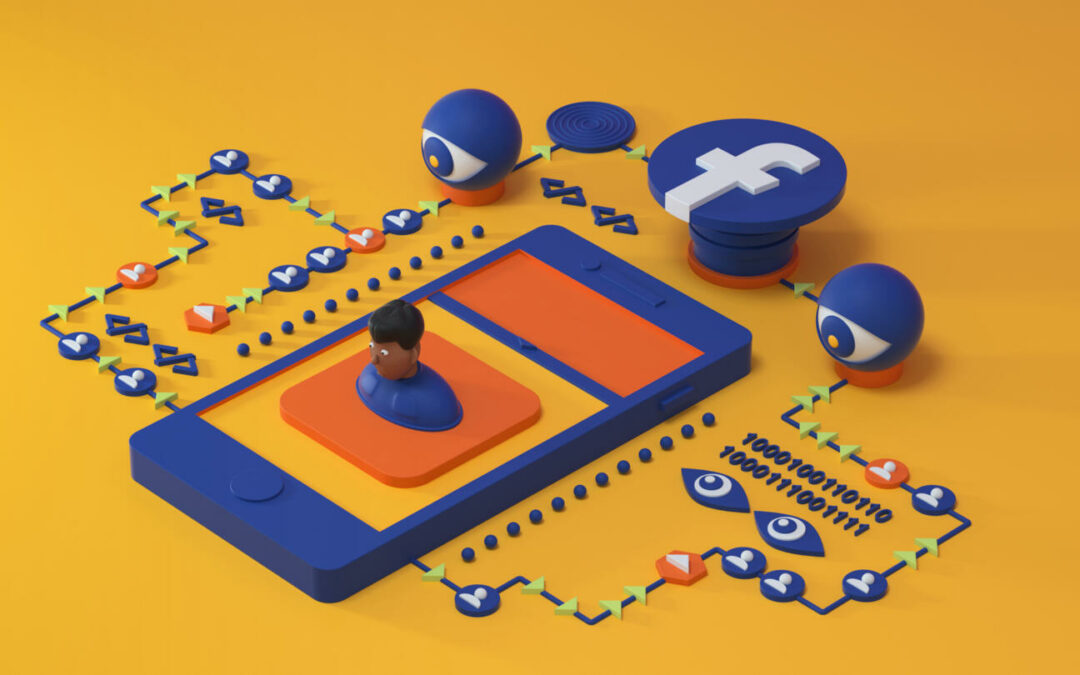LiveRamp, Acxiom, Experian Marketing Services, Hearts & Science, ODC CA, Epsilon Audience Data Provider, The Home Depot, OMD USA, 4C, and Amazon were the companies most frequently mentioned by panelists in a new study that reveals Facebook’s extensive monitoring of users across its platform.
According to the report, up to 7,000 companies monitor individual Facebook users’ online behavior.
The data originates from events and custom audiences, and it includes information about people’s activities outside of Meta’s platforms.
READ MORE: Facebook And Instagram Are Pursuing Ad-Free Streaming Services
Custom audiences enable advertisers to upload client lists to Meta with identifiers such as email addresses and mobile advertising IDs. Customers’ information and lookalike audiences comprised of similar individuals can be targeted with adverts across Meta’s platforms.

The other category, Events, outlines interactions a user experienced with a brand that occurred outside of Meta’s apps and in the real world.
This can include going to a company’s website, leveling up in a game, visiting a real store, or buying a product.
The signals come via Meta software code included in mobile apps, a tracking pixel on websites, and server-to-server tracking, which involves a company’s server sending data to a Meta server. It can be found in the bottom of any browser that shares information.

Using a panel of 709 people who provided Facebook data archives, Consumer Reports discovered that 186,892 businesses sent data about themselves to the social network.
On average, 2,230 organizations contributed their data to Facebook for each study participant, although the quantity varied, with some panelists’ data indicating that more than 7,000 companies provided their data.
A huge proportion of the approximately 186,000 enterprises included in the data were small merchants, non-national brands, or unrecognizable names. One consumer volunteer’s data had information about over 48,000 different companies.

It appeared to be someone with strange app usage patterns. Approximately 52% of the companies targeted only one of the 709 participants.
READ MORE: Meta Adds New Tools To Reels Ads On Facebook And Instagram
Consumer Reports advocates for policy improvements regarding data gathering techniques in its study.
Among the recommendations are regulations for businesses to implement data-minimization practices that restrict data. This entails collecting the least amount of data required to offer the service.
Another idea is a policy requiring authorized agents to act on behalf of consumers to preserve their rights. Consumer Reports offers the Permission Slip mobile app, which allows users to opt out of and delete data from a broad list of organizations and data brokers on their behalf.
Similar to Google, Consumer Reports recommends boosting openness across Meta apps by developing ad archives that allow the public to view all ads provided to users on a platform.
Consumer Reports, an independent charity, collaborated with The Markup to find 709 volunteers willing to donate their Facebook data archives, allowing the team to study “server-to-server” monitoring. This exposed how many organizations exchanged user data with Facebook by sending personal information from their servers to Meta’s servers.
According to the data, an average of 2,230 organizations actively shared data about each user with the social networking app.

“We offer a number of transparency tools to help people understand the information that businesses choose to share with us, and manage how it’s used,” Meta spokesperson Emil Vazquez said in an email to The Markup.
Despite Meta’s terms and conditions and transparency tools, Consumer Reports discovered that many data sources’ identities were unknown, and advertisers frequently ignored user opt-out requests.
READ MORE: Meta: Facebook Founder Introduces Virtual Reality Service For $7.99 Per Month
The study notes that the data from a self-selected set of users may not be typical of the general US population.

Furthermore, the results were not demographically corrected. Consumer Reports also stated that participants were more likely to be privacy-conscious, technically inclined, and Consumer Reports members, indicating a potential sample bias.
These types of studies highlight trust difficulties, but they are not exclusive to Facebook or the internet.
Writing about how data is used for advertising and marketing causes me to pause when I read reports, app and website terms and conditions, and requests from corporations to disclose consumer data.
For example, KardiaMobile is a little electronic EKG that connects to an app on a mobile phone, which my husband recommended we buy after it went on sale over the holidays. If you call customer service to ask how to change the battery in the little gadget, they will send you an email seeking your name, phone number, address, and serial number in accordance with FDA regulations.
After receiving the email, we discarded that merchandise. Nobody asks for that information when you buy a blood pressure cuff, not even one that connects to an app.
Radiant and America Nu, offering to elevate your entertainment game! Movies, TV series, exclusive interviews, music, and more—download now on various devices, including iPhones, Androids, smart TVs, Apple TV, Fire Stick, and more.



